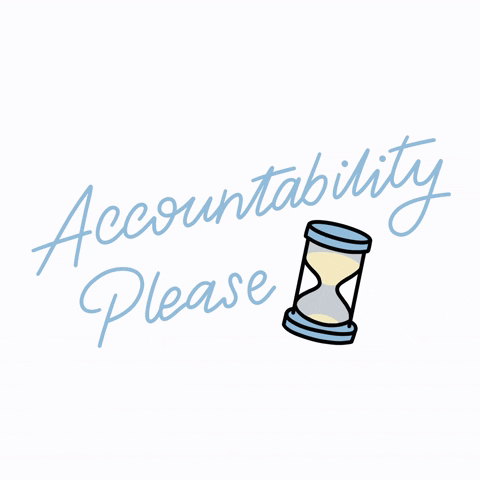Do you have a clear vision of where you want your career to go, but don’t know how to get there?
It can be challenging to set and achieve your professional goals without a plan of action. Knowing how to set professional goals can help you stay on track and motivated to reach them.
In this blog post, we will discuss the steps to setting and achieving your professional goals. We will also provide examples of professional goals to help you get started.
With the right approach and a bit of dedication, you can reach your highest aspirations.
Table of Contents
What Are Professional Goals?

Professional goals are objectives that an individual sets to achieve success in their career. These goals are often ambitious and can encompass a variety of objectives such as improving skills, developing relationships, and obtaining a higher-level position. Professional goals are typically set to advance one’s professional development and help one reach their full potential in the workplace.
When setting professional goals, it is important to consider the scope of your ambitions. Your goals should challenge you to stretch yourself and push boundaries. That being said, they should also be achievable and aligned with your current skills and capabilities.
It is important to ensure that you set goals that can be measured and tracked to gauge your progress. Additionally, it is essential to consider the timeline within which you plan to accomplish these goals.
Read also: Who is a Manager? Roles and Responsibilities Defined
Why Should We Set Professional Goals?
The simple answer is that setting professional goals gives us a sense of direction and purpose in our careers. When we set goals, we’re committing to a certain outcome, and that can be incredibly motivating.
Moreover, setting goals allows us to stay focused and push through when times get tough. When we have a clear target to strive for, it’s easier to stay on track and remain motivated even when things don’t go according to plan. Goals also provide us with an opportunity to measure our progress and success.
Lastly, professional goals can help us develop our emotional intelligence. When we set goals, we are forced to look inward and examine what we truly want in life. This can be extremely beneficial in terms of understanding ourselves better, which can then help us manage our emotions and relationships more effectively.
Setting professional goals is an essential part of career development. It provides us with a sense of direction and purpose and allows us to measure our progress and success.
Some points that you need to take care of while on the journey are as follows.
1. Celebrate each accomplishment along the way

Achieving your goals is an amazing feeling. But why wait for the end of the journey to celebrate?
It’s important to recognize each step along the way. As you reach each milestone, take the time to appreciate and celebrate your success. It’s a great way to stay motivated, increase confidence, and reinforce your dedication to completing your ultimate goal.
When you achieve one of those smaller goals, reward yourself with something that’s meaningful to you—whether it’s an afternoon off, a special dinner out, or tickets to a show you’ve been wanting to see. Allowing yourself these small rewards can help motivate you to keep moving forward and making progress.
It’s also important to recognize the progress you’ve made. Check in with yourself periodically and assess how far you’ve come since you first set your goal. This will help remind you of the value of your hard work and give you the strength to stay focused on achieving your ultimate goal.
Read also: 8 SMART Sales Goals for Business Growth [+ Case Study]
2. Create a plan of action

When it comes to achieving professional goals, having a plan of action is key. You need to have a clear idea of what you want to do and how you’re going to do it. Make sure your plan of action outlines the steps you will take and the timeline for each one.
Start by breaking your big goal into smaller, more manageable tasks. This will help you stay focused on the steps needed to get there. For each step, create a timeline and set deadlines. By setting deadlines, you will ensure that progress is being made.
Next, prioritize each task in your plan of action. Figure out which tasks need to be completed first and allocate resources accordingly. You may also want to consider which tasks can be outsourced or delegated. This will give you more time and energy to focus on the tasks that require your attention.
Finally, track your progress along the way. You should monitor the timeline of each task to make sure it’s getting done on time. Make sure to adjust the timeline if needed and take note of any obstacles or setbacks you encounter. That way, you can be better prepared for future challenges.
By creating a detailed plan of action, you can stay organized and on track to achieve your professional goals. With dedication and perseverance, you can make your dream a reality!
3. Hold yourself accountable

When it comes to setting and achieving professional goals, one of the most important things to remember is to hold yourself accountable. Accountability is key when it comes to sticking to your plan and reaching your goals.
Here are some tips on how to stay accountable:
- Create a timeline. Create a timeline for yourself, with deadlines, and try your best to stick to it. Having a timeline with milestones and deadlines helps create a sense of urgency and keeps you motivated.
- Track progress. Make sure to track your progress and take note of how far you have come. This will help you stay focused and motivated.
- Set reminders. Set reminders for yourself so you don’t forget about any tasks or goals you need to complete. This can be done through email notifications, calendar reminders, or task list apps.
- Celebrate small wins. Celebrating small wins helps keep you motivated and helps reinforces that you are making progress.
- Get an accountability partner. Having someone who holds you accountable is a great way to stay on track and reach your goals. Ask a colleague or friend to help keep you accountable, or join an online accountability group where you can find support and inspiration from other professionals who have similar goals.
- Join or create a mastermind group. Joining or creating a mastermind group is an excellent way to help achieve professional goals. A mastermind group is a group of individuals who come together to collaborate and brainstorm ideas to help each other reach their goals. The members of the group are usually experts in their respective fields or have a deep level of knowledge about the topic of interest.
One of the greatest benefits of joining or creating a mastermind group is that it gives you access to the collective knowledge and expertise of the members of the group. This is invaluable for any professional looking to take their career to the next level. Having access to the knowledge and experience of others can help spark new ideas, provide perspective on challenges, and open up potential opportunities.
Finally, being part of a mastermind group can help build strong relationships with like-minded professionals. This can be especially beneficial if you are looking to grow your network or collaborate on a project.
By leveraging the collective knowledge and experience of the group, having accountability, and building strong relationships, you will be well on your way to achieving your goals.
Read also: The Right Way Of Saying ‘Sorry for the Inconvenience’
4. Make a difference

It’s not only about setting an example for others and motivating them to reach their goals but also about inspiring the change needed to get there. To become a leader, you must first be willing to step up and create a difference.
To do this, start by taking ownership of a project or area that needs improvement. Ask yourself what kind of changes need to be made to make a lasting impact. Once you’ve identified a problem or opportunity, take the initiative and develop a plan to address it. This could mean developing a training program or taking on additional responsibilities to streamline processes and increase efficiency.
Leadership involves more than just managing people; it also means being open to feedback, taking risks, and pushing yourself out of your comfort zone. This can be uncomfortable at first, but it’s essential if you want to make a difference and inspire others to do the same.
When you do make a difference, everyone involved will feel that they have contributed. By taking on the challenge of creating a difference, you’ll be well on your way to becoming a leader in your field.
Read also: These 20 Team-Building Questions Are Pure Gold
5. Become an expert in your field

One of the most important professional goals you should strive for is to become an expert in your field. This doesn’t mean you need to be the absolute best, but you should strive to continuously improve your skills and knowledge.
Doing so will help you develop a greater understanding of your industry and all the moving pieces that come with it.
By taking the time to study your chosen field and continually educate yourself, you will gain valuable insight into trends, processes, and strategies. This will allow you to stay ahead of the curve and provide more value to your employer or clients.
When attempting to become an expert in your field, remember to focus on building skills in areas that you are passionate about. This way you can feel more inspired and motivated when studying and learning.
Additionally, always take the time to network with other professionals in your field. This can help open up opportunities and provide valuable advice from those who have gone before you.
6. Make a positive impact

Making a positive impact in your chosen field of work is an important professional goal. Being an expert in your field means more than just having the technical knowledge and expertise—it means being an advocate for your industry and making a lasting contribution to the world.
A few ways to make a positive impact include staying current with new developments in your field, mentoring young professionals, volunteering in the community, and developing innovative solutions to existing problems. By being an active contributor, you can create positive change and help shape the future of your industry.
Keeping an eye on competitors and other potential business partners can be beneficial as well, since understanding their goals, motivations, and strategies could open up new business opportunities.
Finally, focus on making an impact beyond your workplace. Look for opportunities to volunteer in your community or take part in social justice initiatives that speak to your values.
Doing this shows that you are passionate about making a difference, not just earning money. It also reflects positively on the companies and organizations you are associated with and helps build your reputation as an individual who is committed to making a difference.
By contributing to the advancement of your field, you can make a significant impact and set yourself apart from others in the industry.
Read also: Operations Strategy: Definition, Elements, and Advantages
Conclusion
It is important to set professional goals to help you stay focused on what you need to do to advance in your career. Whether it’s becoming an expert in your field, learning new skills, or creating a positive impact, setting goals can help you stay motivated and on track.
By taking the time to consider your own goals and objectives carefully, you can create a plan of action that will make it easier for you to reach success.
Achieving these goals may take some time and hard work, but with dedication and perseverance, you can make them a reality.
